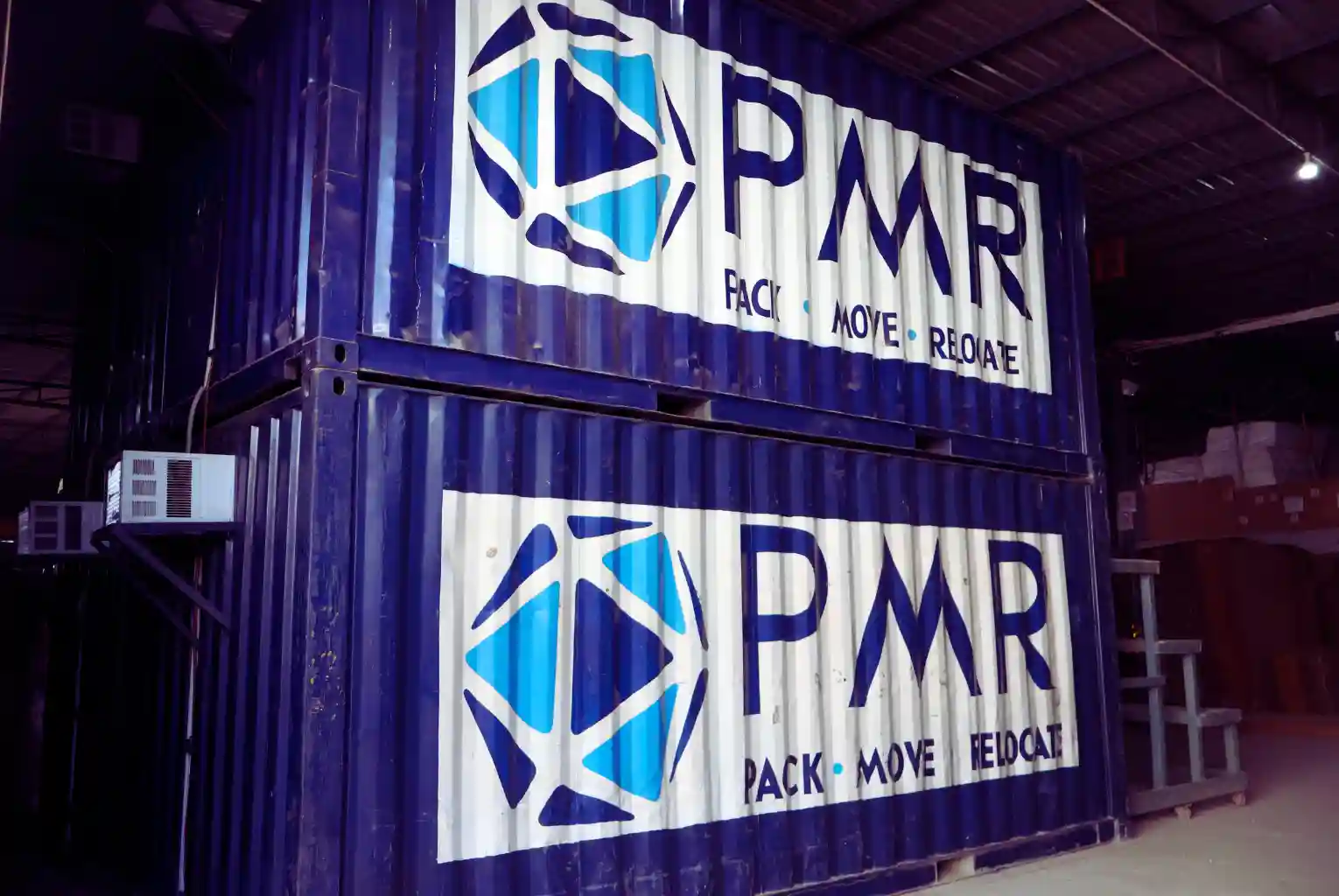QATAR RELOCATION GUIDE: YOUR COMPREHENSIVE CHECKLIST FOR A SMOOTH MOVE

Introduction
Welcome to this relocation guide to Qatar. We are focused on making your move as smooth as possible. We can offer you valuable information about visas, good housing places, and local traditions and customs so you can get off to a good start. At the same time, we'll outline some of the better and lesser good things about moving to Qatar so that you know what awaits you there.
Whether you're seeking tax-free income, professional growth, or a new cultural experience, this guide equips you with all the necessary information for a successful move. So, pack your bags, prepare for the adventure, and embark on this journey to make Qatar your new home. With careful planning and preparation, your transition to Qatar will be a smooth and rewarding experience.
Why Choose Qatar?
- Get a Job Offer: Most expats go to Qatar for work. Before you plan to move, ensure you have a valid job offer from a Qatari employer.
- Obtain a Work Visa: Your employer will generally support your work visa. They will initiate this procedure in Qatar, and you will be required to hand over important documents, such as your passport, school certificates, and health records.
- Plan Your Finances: Check out Qatar's living costs so Indian families can plan their finances accordingly. Qatar is usually costlier than India, so there are additional costs for housekeeping, schooling, and daily expenses.
- Housing Accommodation: Your employer will probably provide accommodation; otherwise, research options in advance. Find out where expats tend to live: West Bay, The Pearl, and Al Waab come highly recommended.
- Healthcare Preparation: Qatar has a good healthcare system, but it's advisable to get international health insurance coverage before your move.
- Education for the Children: If you bring your family, explore international schools and register them early because the waiting lists are very long there.
- Cultural Orientation: Learn about Qatari customs and laws to move smoothly and respectfully to your new home.
- From India to Qatar: As expected, moving from India to Qatar will incur some costs - flight tickets, shipping of goods, visa fees, and settling in Qatar. These vary significantly depending on circumstances but typically fall between USD 3,000 and USD 10,000.
- Get Ready to Leave: Cancel subscriptions, let banks and government offices know about your move, and say goodbye to friends and family.
- Arrival in Qatar: On arrival, finalize the residency process, open a local bank account, and obtain a Qatari ID card to settle fully into your new life.
Visa and Residence Regulations for Qatar
Your employer usually assists you in obtaining your work visa and residence permit. This process entails obtaining a No Objection Certificate from the Ministry of Labour. There are family visas for close family members of residents so they can come to Qatar to be with you.
You need to know how to check your Qatar residence permit. This online service provides access to the status of your permit and its eventual expiry, helping you comply with the local rules.
Residence permits are usually valid for one to three years and can be renewed. The renewal process should be initiated at least 30 days before expiration. Remember that your residence permit is linked to your sponsor, and changing employers requires transferring your sponsorship.
Always carry your Qatar ID card and proof of residence permit to maintain your legal status. Failure to follow visa rules can result in fines or even deportation. Be aware of the permit's validity and updates in immigration laws.
Finding Accommodation in Qatar: Options for Expats
Tall buildings have furnished and unfurnished apartments. These usually provide a gym, swimming pool, and security services. Other people prefer separate villas or blocks of houses with shared facilities, often chosen by families who prefer more space.
Pearl-Qatar is a man-made island with luxury apartments and villas surrounded by water. Other places are used for expat housing: West Bay, Lusail, Al Waab, etc. When finding a place to stay, look for those nearby to work, schools, or health facilities. Engage with the best estate agents who understand the local market and can help you find a rental apartment.
Rental prices in Qatar are also steep, especially in famous districts. However, most employers offer housing allowances as part of expat packages, which helps offset such costs. Be prepared to pay your rent in advance, often in post-dated checks, for the entire lease period.
Cost of Living in Qatar: A Detailed Breakdown
Housing usually occupies the biggest part of your budget. Rent for a one-bedroom apartment in Doha ranges from 2,500 to 5,000 QAR per month. Utilities like electricity, water, and internet add another 300 to 500 QAR to your expenses.
The food is affordable, ranging from very low-priced local products to more expensive imports. A local could spend between 800 QAR and 1,200 QAR monthly for groceries and eating out.
Transport will always depend on whether you have a car or take public transport. Gas is cheap, but car prices are expensive. Public transport is improving, and it's quite cheap.
Qatar is really pricier compared to India, especially in housing and import items. However, income is tax-free in Qatar, and these higher costs are often balanced against that advantage, making it a highly sought-after place for many foreigners to grow their money.
Healthcare in Qatar: Understanding Your Options
The public healthcare system in Qatar is administered by Hamad Medical Corporation, which has many hospitals in Qatar. The hospitals provide good care at lower prices to Qatari citizens and residents with valid health cards. Expats can utilize public healthcare services; however, they may have to wait longer for those facilities than for private services.
Qatar has an excellent private healthcare system for those requiring immediate care or particular services. Private hospitals in Qatar generally cater to foreigners, and the majority of staff members speak several languages and have various specializations.
Typically, expats in Qatar get private health insurance from their employer or individually. Most companies provide health insurance as part of their package, but individuals must scrutinize the details to ensure adequate coverage.
Pharmacies are widely available throughout Qatar, and many operate 24/7. To ensure continuity of care during the transition period, newcomers should initially bring essential medications, along with prescriptions.
Education in Qatar: Schools for International Students
The education system in Qatar combines bilingual learning because most schools teach their students in English and Arabic. This allows international students to stay connected with the local culture and maintain international standards of achievement.
Higher education in Qatar is fast becoming a golden opportunity for older students. In the Education City, some international universities have set up campuses to encourage quality tertiary education within the country. Programs range from engineering to arts. This would afford them good quality tertiary education without having to leave the country.
Ensuring a smooth transition for your children in the new home begins with researching and selecting the right school.
Cultural Etiquette in Qatar: A Survival Guide for Expats
Greeting someone is a massive part of the culture of Qatar. Teach yourself to use As-salaam-alaikum, or "peace be upon you," to greet locals when first approaching them. When invited into a Qatari's house, remove your shoes and accept the offered refreshments as a sign of hospitality. While eating, use your right hand to eat and pass dishes to others with your right hand.
Public displays of affection are discouraged, so you should maintain a proper distance from the opposite sex. The intake of alcohol is strictly controlled; drinking is allowed only on licensed premises. Photography is also viewed as a sensitive issue; one has to get permission before photographing people, especially women.
It respects Qatar's culture and helps build positive relationships. Adopting the norms of the culture will build social self-confidence and appreciation for Qatar's unique cultural landscape.
Moving to Qatar with Family: Tips for a Smooth Transition
Consider school options for your kids. International schools are available to suit all curricula; however, spaces are limited, so apply early. Healthcare is also an important consideration —you will need to know a lot about the system and arrange appropriate insurance coverage for your family.
The cost of living in Qatar for a family is thus important in planning and budgeting. Although salaries in Qatar are tax-free, they still carry greater burdens with housing, education, and transportation. Find out about the various neighborhoods to suit accommodations, balancing the cost against the proximity to work, schools, and other amenities.
Familiarize yourself with local customs and etiquette to prepare the family for what they can expect regarding cultural adjustments. Discuss as much as you can with the family in terms of the move openly and make them a part of the process so that they can better adjust. Finally, contact expat communities for support and useful insight into family life in Qatar.
Advantages and Disadvantages of Relocating to Qatar: Finding the Balance
- Taxes on salaries are free: Upon moving to Qatar, you are presented with the opportunity to have tax-free salaries, which will then save more of your paycheck.
- Standard Living: Qatar offers updated infrastructure, luxurious living, and world-class facilities.
- Career Opportunity: The economy grew very fast, displaying a host of job opportunities, with major emphasis placed on oil and gas, finance, and construction industries.
- The cultural experience: A great experience in the rich Arabic culture and traditions with a diverse community of expatriates.
- Safety: Qatar has one of the lowest crime rates globally, making it a very safe place to live.
- Education: Good international schools and universities that are accessible to both expats and locals.
- Healthcare: The country has modern medical facilities and quality healthcare services.
- Strategic location: Qatar is located in the center of the Middle East, which will increase travel or business in the region.
- Legacy of the 2022 World Cup: Benefit from the improved infrastructure and facilities built for the tournament.
- Climate: It may be hot and humid in summer, especially for those unfamiliar with the desert environment.
- Cultural adjustment: The conservative Islamic laws and customs will likely require some expats to alter their lifestyles when moving to Qatar.
- Cost of living: Even though the salaries are tax-free, the cost of living in Qatar, particularly in Doha, is expensive, especially regarding accommodation and education.
- Few entertainment facilities: Some might find the nightlife and entertainment very few compared to some Western countries, especially when strictly bound by cultural restrictions.
- Driving: Traffic congestion has been ever-increasing in Doha. Aggressive driving with general traffic conditions can be really stressful.
- Lack of permanent residence: Long-term residence may become challenging in Qatar because it does not grant permanent residence to most expatriates.
- Language: Though many understand English, knowing Arabic helps ease residency and professional mobility.
- Employment dependency: The sponsorship system, known as Kafala, ties your residency to your employer, limiting mobility between jobs.
- Gender imbalance: The ratio of male to female expatriates is unbalanced, and a few women still cannot easily adapt to certain professional and social settings.
- Natural attractions are limited: Qatar's desert landscape offers fewer outdoor leisure options than countries with varied terrains.
- Censorship: The government may limit or censor certain websites and media content.
Conclusion
Our Blogs

WHY SUCCESSFUL RELOCATION DEPENDS MORE ON RELOCATION PLANNING THAN DISTANCE
Successful relocation is rarely defined by distance—it’s driven by effective planning. From choosing the right storage solutions to coordinating warehouse timelines, smart relocation planning helps protect your belongings, reduce delays, and ensure a seamless transition. Whether it’s short-term storage or long-term warehousing, organized logistics play a critical role in making any move successful.

WHY YOUR BELONGINGS DESERVE A PAUSE: RETHINKING STORAGE AND WAREHOUSING SERVICES DURING RELOCATION
Relocation is not always a seamless door-to-door journey. Delayed handovers, international transit schedules, temporary housing, or sudden changes in plans often create a gap between moving out and moving in. During this uncertain phase, professional storage and warehousing services provide a safe, controlled environment for your belongings. From short-term holding to long-term storage, these solutions ensure your household goods remain protected, organized, and ready for the next step of your relocation—without adding stress to an already complex move.

WHY INTERNATIONAL RELOCATION TIMELINES OFTEN SLIP — AND WHAT YOU CAN DO TO STAY ON TRACK
International relocation timelines often look straightforward on paper—but reality tells a different story. Visa approvals, customs regulations, documentation gaps, port congestion, and coordination between multiple service providers can easily cause unexpected delays. Even small oversights early in the planning stage can snowball into weeks of disruption. This blog breaks down the real reasons why international relocation timelines slip and, more importantly, outlines practical steps you can take to anticipate risks, plan smarter, and keep your global move moving forward without unnecessary stress.



